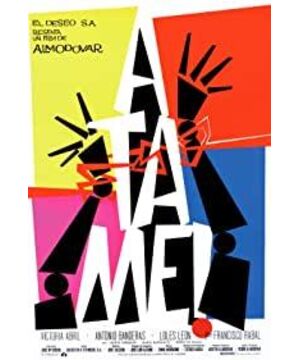Almodovar has no professional training, and he has no rules and regulations in his mind. He is like a boss who makes black money in business, desperate to achieve his goals. The desperation of art is often the premise of the birth of the classic. A criminal shell, a passionate attempt, a film shot at the same time, these real impossibilities meet the real desires of our hearts. As for whether the male and female protagonists have real love in the end, we don't have to think about it at all, all we care about is this impulse. The prisoner in Stockholm finally fell in love with the kidnapper, and at the end of the film, it seemed to inadvertently hint that the kidnapper and the prisoner's sister might also have an impulsive relationship! Desires are everywhere. Almodóvar matched this urge with a subclimax of music and parallel editing. In fact, all his works are interpreting: there are countless possibilities for people to live, and people should vent everything. This is the freedom of art and the illusion of reality, but it is undeniable that almost all immoral and unruly films will win a greater chance of being a good film. And many of the best works have almost anti-human shadows. For example, the future of the movies "One Hundred and Twenty Days of Sodom" and "Sailor of Fog Harbor" is destined to wear a rotten cloak and make people carnival.
View more about
Tie Me Up! Tie Me Down! reviews











